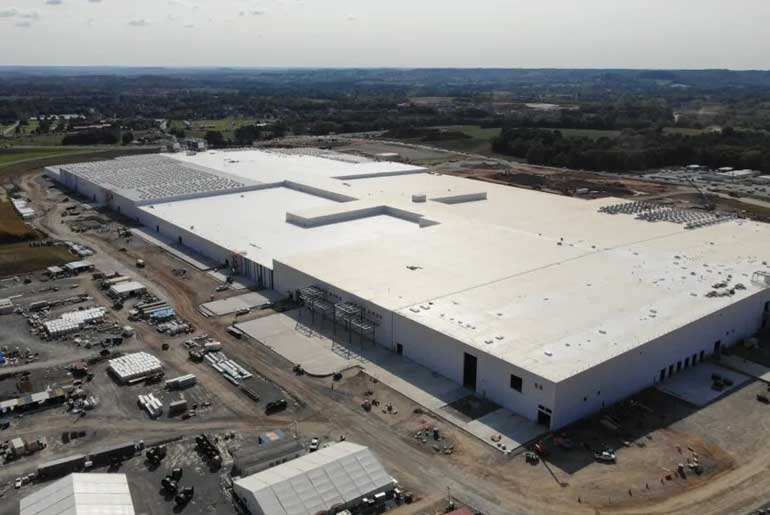As part of the joint venture between General Motors and LG Energy Solution, Ultium Cells LLC will extend its production capacities as it upgrades its manufacturing plant in Spring Hill, Tennessee to create lithium iron phosphate battery cells.
Commercial manufacturing of the less expensive LFP chemistry is anticipated by late 2027, with conversion of current battery cell lines starting later this year. A $2.3 billion investment was made in 2021 for the factory, which now employs about 1,300 people, and the renovation adds on that commitment.
“At GM, we’re innovating battery technology to deliver the best mix of range, performance, and affordability to our EV customers,” stated Kurt Kelty, GM’s vice president of batteries, propulsion, and sustainability. “This upgrade at Spring Hill will enable us to scale production of lower-cost LFP cell technologies in the US, complementing our high-nickel and future lithium manganese rich solutions and further diversifying our growing EV portfolio.”
Ultium Cells can now produce many battery chemistries at one site thanks to the plant expansion. The joint venture’s Warren, Ohio facility will continue to produce nickel cobalt manganese aluminum cells, which GM has utilized in crossover cars to achieve more than 300 miles of range per charge, while Spring Hill switches to LFP manufacture.
Despite usually having a lower energy density, LFP battery technology offers considerable cost benefits over existing high-nickel battery packs. By accommodating various cell chemistries and configurations, GM’s Ultium platform enables the manufacturer to match battery technology with certain vehicle specifications and pricing points.
“The upgrade reflects the continued strength of our partnership with General Motors and our shared commitment to advancing EV battery innovation,” stated Wonjoon Suh, executive vice president and head of LG Energy Solution’s Advanced Automotive Battery division. “We will bring our extensive experience and expertise in U.S. manufacturing to the joint venture facility, further accelerating our efforts to deliver new chemistries and form factors that effectively capture the unmet needs in the EV market.”
Tennessee Economic and Community Development Commissioner Stuart C. McWhorter noted the state’s ongoing relationship with the partners. “Ultium Cells’ additional investment and commitment to innovating and enhancing its Spring Hill operations is a testament to the state’s longstanding, cohesive partnerships, which started with General Motors, and grew to include LG Energy Solution in 2021,” he said.
“This investment expands our capabilities beyond a single battery cell chemistry, allowing us to produce new chemistries alongside our existing cells,” stated Kee Eun, president and CEO of Ultium Cells. “Expanding our product portfolio ensures Ultium Cells will remain at the forefront of battery cell innovation and sustain our commitment to be a stable, long-term employer for the communities we serve.”
With intentions to service other automakers and industries including rail, aerospace, trucking, and marine applications, the joint venture primarily provides battery cells for GM’s North American EV manufacturing.



